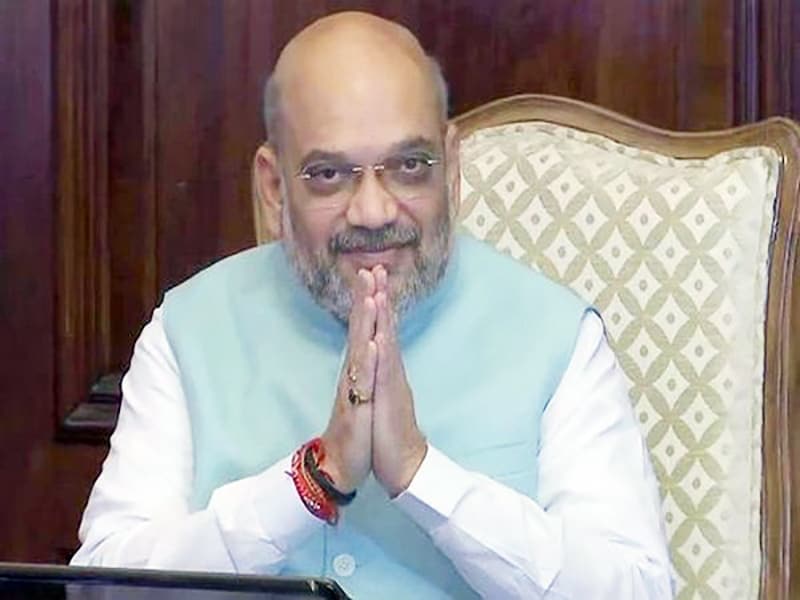Agartala/Aizawl: Most regional and local parties from the northeastern states would attend the consultative meeting called by Home Minister Amit Shah to discuss the proposed amendment in the Citizenship Amendment Bill (CAB).
According to the officials of Tripura government, the meeting on CAB will start at around 9 p.m. on Friday.
NESO
The leaders of the North East Students’ Organisation (NESO), an apex body of eight students and youth outfits, which have been agitating against the CAB across all the seven states in the region, would not attend the meeting, but would meet the Shah separately on Saturday.
The two national parties — Congress and Communist Party India-Marxist (CPI-M) — would boycott the meeting, the first of its kind after the controversy cropped up following the introduction of the CAB amendment bill in the Parliament last year.
Several Chief Ministers from the northeastern states, including Conrad Sangma (Meghalaya) and Biplab Kumar Deb (Tripura), are already in Delhi to attend the meeting.
An official of Mizoram Chief Minister’s secretariat told IANS over phone that Chief Minister Zoramthanga, who is also the President of the ruling Mizo National Front (MNF), would not attend the meeting.
Though he would go to Delhi on Saturday, it was not confirmed whether he would meet Shah on the issue separately.
The National People’s Party (NPP), headed by Sangma, is a constituent of the Bharatiya Janata Party-floated grouping of non-Congress parties, North East Democratic Alliance (NEDA). BJP’s leader and Assam Finance Minister Himanta Biswa Sarma is the convener of the (NEDA).
MNF, NPP oppose CAB
The MNF and the NPP are strongly opposing the CAB. The MNF has also been part of the NEDA since the beginning. Leaders of BJP’s ally in Tripura, Indigenous People’s Front of Tripura (IPFT), Indigenous Nationalist Party of Tripura (INPT), Tripura’s oldest tribal-based party, the NGO Cordination Committee dominated by influential Young Mizo Association, Zoram People’s Movement, and Mizo Zirlai Pawl in Mizoram have also reached Delhi to attend the meeting.
Meanwhile, NESO Secretary General Sinam Prakash Singh told IANS that the leaders of eight constituent parties would meet in Delhi on Friday evening before meeting Shah on Saturday.
Senior CPI-M tribal leader and former minister Jitendra Chaudhury said the formulation of the proposed CAB bill is entirely against the very principles of the constitutions and idea of Indian nation hood.
“After the Partition in 1947 and the subsequent developments, influx of crores of people during the past several decades had already flooded the eastern part of the country, causing multiple bearings in the social, cultural, political and economic life of eastern India, especially the northeast region,” Chaudhury told IANS.
Former Tripura Chief Minister and CPI-M politburo member Manik Sarkar and CPI-M state Secretary Gautam Das wrote separate letters to Amit Shah expressing their opposition to the CAB and their aversion to attend the meeting.
AICC Secretary in-charge of northeastern states Bhupen Bora and senior Congress leader in Tripura Gopal Roy said that the party leaders from all the eight northeastern stataes are strongly against the CAB.
“Congress leaders of Tripura and other northeastern states would not attend the meeting on Friday. The CAB is not only against the spirit of the Constitution, but would also further jeopardise the basic demographic situation in the northeast region,” Roy told the media.
The CAB intends to make it easier for non-Muslim immigrants from India’s three Muslim-majority neighbours — Pakistan, Bangladesh and Afghanistan — to become citizens of India.
Though the bill ostensibly entitles the Hindus, Sikhs, Buddhists, Jains, Parsis and Christians facing religious persecution in the three countries to seek Indian citizenship, it propose the exclusion of Muslims from the purview of the CAB.
The amendment is to the Citizenship Act, 1955, which requires the applicant to have resided in India for 11 of the previous 14 years. The amendment seeks to relax this requirement of 11 years to 6 years for the Hindus, Sikhs, Buddhists, Jains, Parsis and Christians from the three nations.
In the run up to the last general elections, almost the entire northeast India, mostly ruled by the BJP or its allies, had held agitations against the CAB.

